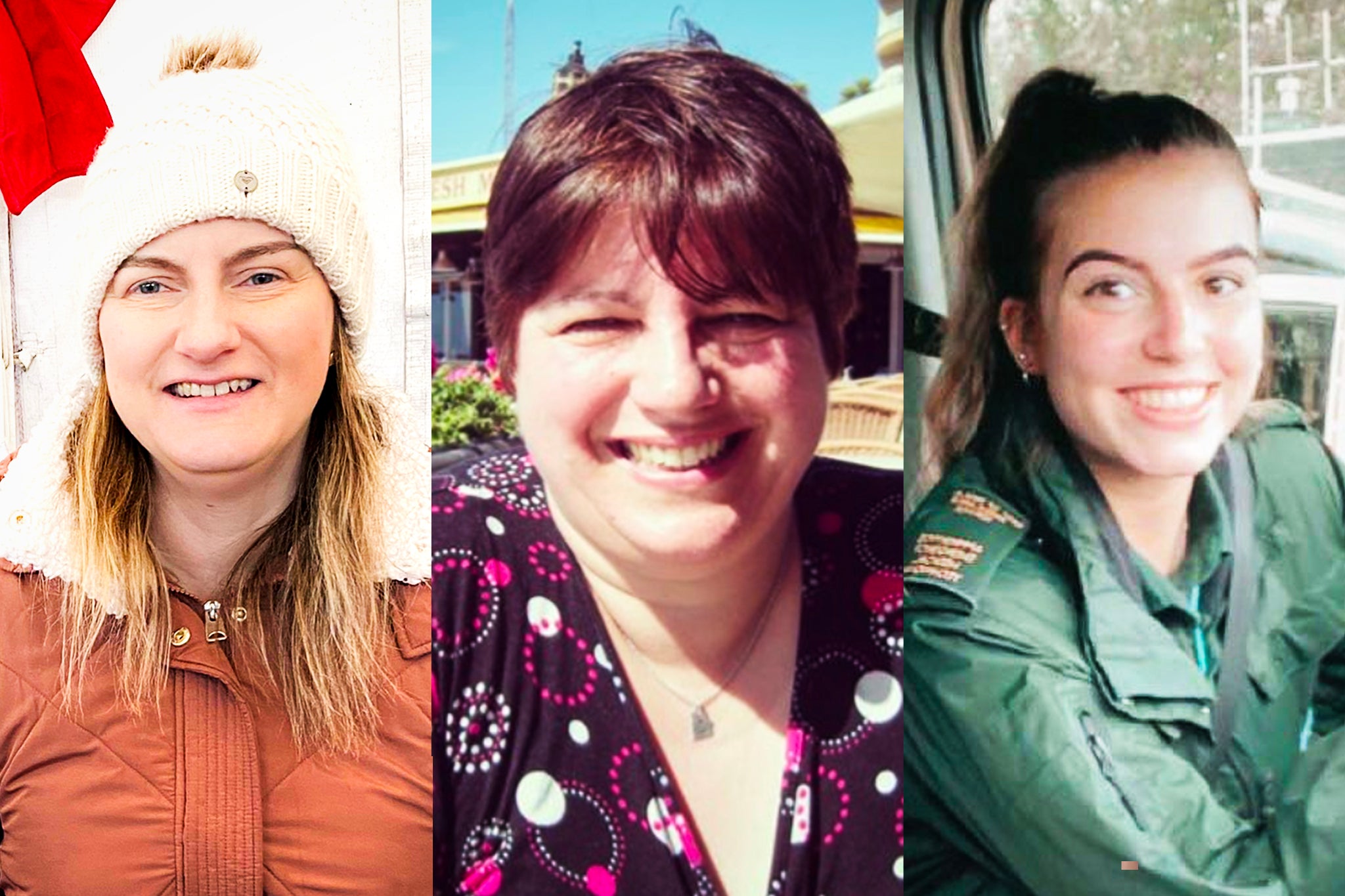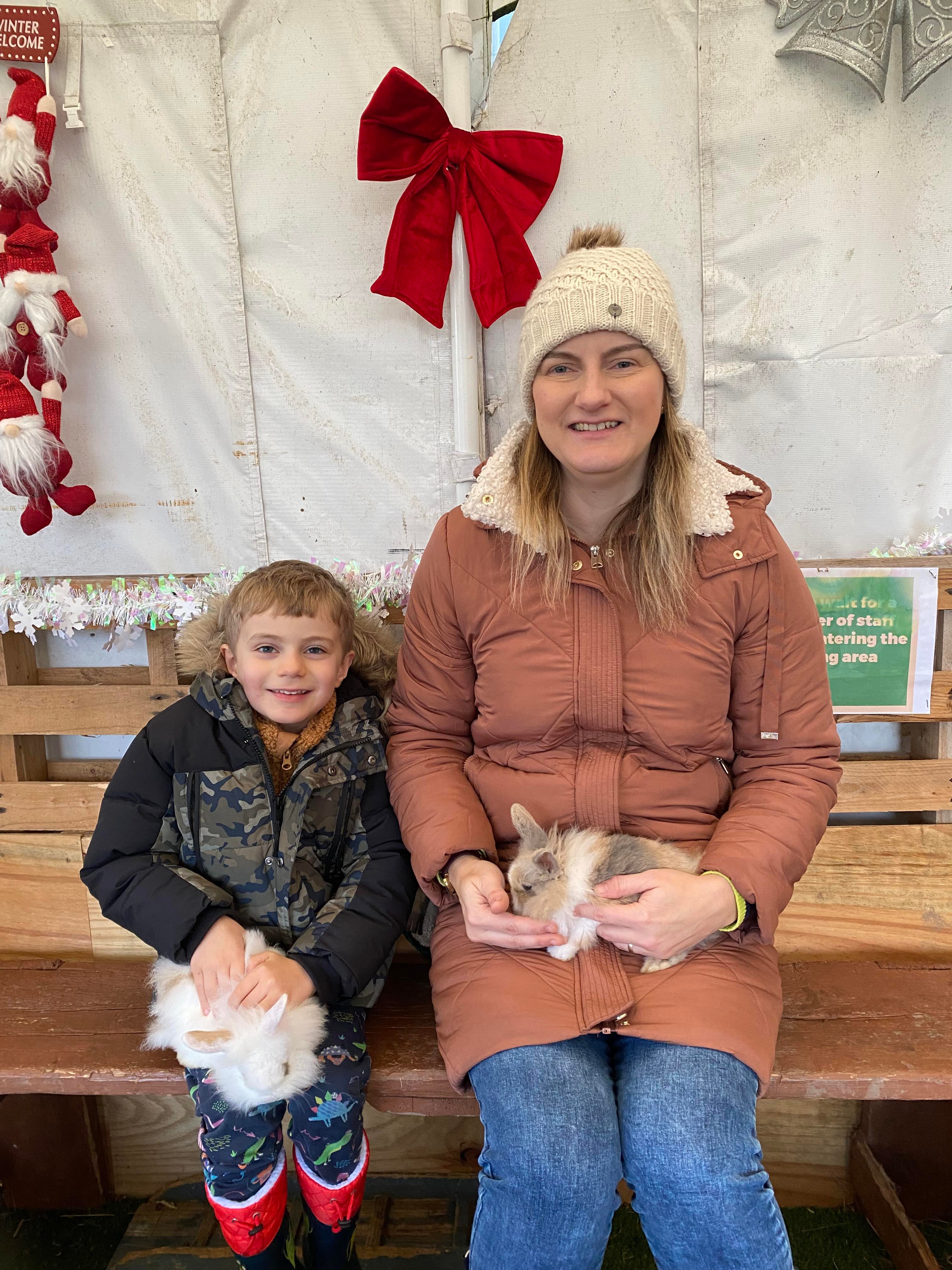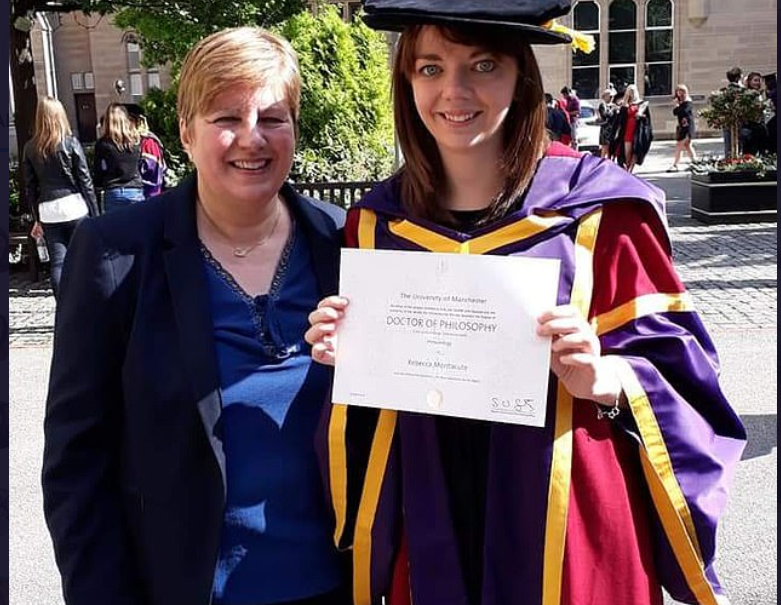Leaked NHS figures reveal 15,000 died in care of mental health trusts in one year
Exclusive: NHS figures leaked by whistleblower suggest more than 15,000 patients died in care of community mental health services in just one year – with desperate families forced to ‘beg’ for treatment from overstretched medical teams
Your support helps us to tell the story
This election is still a dead heat, according to most polls. In a fight with such wafer-thin margins, we need reporters on the ground talking to the people Trump and Harris are courting. Your support allows us to keep sending journalists to the story.
The Independent is trusted by 27 million Americans from across the entire political spectrum every month. Unlike many other quality news outlets, we choose not to lock you out of our reporting and analysis with paywalls. But quality journalism must still be paid for.
Help us keep bring these critical stories to light. Your support makes all the difference.
The shocking number of patients who are dying while under the care of stretched community mental health services can be revealed for the first time after a major NHS report was leaked to The Independent.
More than 15,000 people are estimated to have died in a single year while being cared for by community mental health teams – as trusts scramble for staff and funding while the demand for care is at an all-time high.
The figures, which relate to deaths between March 2022 and March 2023, can be revealed after a concerned insider handed the secret report to this publication. Health officials admitted the statistics had been collated for the first time last year in a bid to reduce deaths – but have not made them public.

The figures include any patient who was receiving care from a general community mental health team, while data suggests that the number of deaths would be far higher if patients receiving care from a crisis team or a perinatal mental health team, or early intervention care from a psychosis team, were included. The figures include deaths by suicide, cases in which an inquest could not reach a ruling of suicide, and those where a person has unexpectedly died, for instance from a heart attack, a stroke, or an accident.
Scores of patients and their families, including families who have lost someone to suicide, have come forward to The Independent, describing how both they and their loved ones have had to “beg” for treatment from stretched teams.
A senior NHS source said community care has suffered “decades of neglect” as they accused health leaders of putting too much focus on inpatient hospital services. Community mental health services include care outside of hospitals, including treatment in clinics or at home.
The leaked report reveals that:
- At least 137 women died between 2022 and 2023 while under the care of services for pregnant women at one unnamed trust
- Nearly one in 10 of the patients treated by a crisis service – designed to help those with the most severe mental health conditions – died while under that care
- One unnamed mental health trust recorded more than 500 deaths in that year-long period
The report reveals that, across the country, an average of 127 patients per 10,000 died while under the care of all community mental health teams in 2022-23. The Independent estimates that this equates to more than 15,000 deaths among the 1.2 million patients cared for by those teams.
Dozens of coroners raised the alarm last year over these deaths, including flagging a national shortage of psychiatrists and other community mental health staff – a situation that has left “vulnerable” patients who are at risk to themselves with “very limited or no support”.
Vacancy levels in community mental health teams hit 12 per cent, while the number of patients being treated increased by 11 per cent.
Natalie McLellan’s 24-year-old daughter Rebecca, a trainee paramedic in the East of England NHS region, was diagnosed with bipolar disorder in 2022. After a year of trying to access mental health care from the Norfolk and Suffolk NHS Foundation Trust, she was found dead in her flat in November.

Ms McLellan described seeing CCTV footage of her daughter outside a mental health hospital, where she begged for help from staff. “I’ve got video footage of her turning to them begging for help. Six minutes of footage of her literally begging them just to [let her] see any health professional,” she told The Independent.
“There are literally hundreds or thousands of people that are being affected by those same failings at the trust. My daughter is not just a number. Her suffering was unforgivable. She didn’t need to suffer the way she did.”
Norfolk and Suffolk NHS Foundation Trust said it was investigating Rebecca McLellan’s death.
The statistics are gathered by NHS benchmarking, which audits the performance of various national health services. The figures do not differentiate between avoidable deaths and expected deaths.
A spokesperson said: “This particular data point is now being collected to support services to better address physical and mental health issues [in an effort] to reduce deaths. Premature mortality is a known issue for people with severe mental health disorders.”
Last month, the health watchdog, the Care Quality Commission (CQC), suggested a national review of community mental health care after raising concerns at the trust where Valdo Calocane was treated. He went on to kill three people during a stabbing rampage in Nottingham last year.
CQC figures published last week show that over a quarter of patients needing mental health support from community crisis teams didn’t get the help they needed when they made contact.
The revelation also comes after a national review into inpatient mental health services was launched, triggered by reporting in The Independent.
The whistleblower told The Independent: “It’s important for the public to know that 96 to 98 per cent of people in contact with mental health services are cared for in community mental health teams. But these teams only receive a small minority of the budget and attention. It’s no wonder that bed pressures are so high when community teams are so threadbare.”
Saffron Cordery, the deputy CEO of NHS Providers, an organisation that represents trusts, said: “The mounting pressure we’re seeing on community mental health services is unsustainable.”
Mark Winstanley, chief executive of charity Rethink Mental Illness, said an “enormous gap” has emerged between patient demand and the NHS mental health workforce, and urged the government to provide a “significant injection” of funding into these services.
‘Zombified’
The NHS does not publish waiting times for community perinatal services, which treat women who are pregnant and up to a year after they have given birth. But figures from the report show that the average waiting time for a first appointment following referral in 2022-23 was three weeks, with some trusts reporting waiting times of more than 25 weeks.
Louise Murmut had a five-year ordeal with community services in Essex, which began when she sought care for a relapse of severe obsessive compulsive disorder while pregnant with her first son.
Ms Murmut, 42, had managed her OCD for a decade with medication, but came off the drugs under the advice of doctors when she became pregnant. This caused a relapse, and she was referred to community perinatal services run by Essex Partnership University Hospital Foundation Trust, she says.

Despite her previous diagnosis, Ms Murmut says, the team treated her for other conditions, including bipolar, using antipsychotic medication that she says “zombified” her. She says that one drug she was prescribed, mirtazapine, caused her to have suicidal thoughts.
Eventually, Ms Murmut says, her mental state became so bad that she was admitted to A&E multiple times. Five months later, she was admitted to a mother and baby unit, where she had her son.
But her struggle to get care didn’t end there. After she was discharged, she was allegedly told she would have to wait six months for a referral. Her mother, who was caring for her, claims she was forced to go to the team’s offices and beg for someone to respond.
Ms Murmut says: “I had a baby that I could not look after. My mother was looking after me and him when he was a baby. To leave us in that situation, to make us wait months and months for something to be done, and to be given incorrect after incorrect treatment... it’s just staggering.
“I am lucky to be alive, and my son, who is now five, is lucky to still have me here.”
A letter from Essex Partnership University Hospital Foundation Trust to Ms Murmut says the service could not refer her to the national specialist service as she had received private counselling.
A spokesperson for the trust said: “We would urge anyone with concerns about their care and treatment to contact us so that we can work with them and their family to ensure their individual needs are met.”
Begging for care
There are no set waiting times for adult community mental health services. However, the NHS report reveals that some trusts have waiting times of more than 50 weeks for a first appointment.

Becky Montacute’s mother Julie died in 2018. The year before, she was sectioned for six weeks and then discharged into the community with “barely any follow-up after that point at all”, her daughter claims.
“She was basically calling mental health services all the time, saying ‘I’m not very well’ and asking them to review the drugs... she was really trying to get them to help her, and they just didn’t. One of the nurses suggested she try gardening.”
NHS England and the Department of Health and Social Care (DHSC) did not respond when asked if they would review community mental health services, but said almost £1bn had been invested in the services between 2019 and last year, and that all areas have a crisis service.
The DHSC added: “Our deepest sympathies go out to the bereaved families in these cases, and we want everyone to receive the safe care they deserve.”
If you are experiencing feelings of distress, or are struggling to cope, you can speak to the Samaritans, in confidence, on 116 123 (UK and ROI), email jo@samaritans.org, or visit the Samaritans website to find details of your nearest branch.
If you are based in the USA, and you or someone you know needs mental health assistance right now, call or text 988, or visit 988lifeline.org to access online chat from the 988 Suicide and Crisis Lifeline.
This is a free, confidential crisis hotline that is available to everyone 24 hours a day, seven days a week. If you are in another country, you can go to www.befrienders.org to find a helpline near you.
Subscribe to Independent Premium to bookmark this article
Want to bookmark your favourite articles and stories to read or reference later? Start your Independent Premium subscription today.

Join our commenting forum
Join thought-provoking conversations, follow other Independent readers and see their replies
Comments